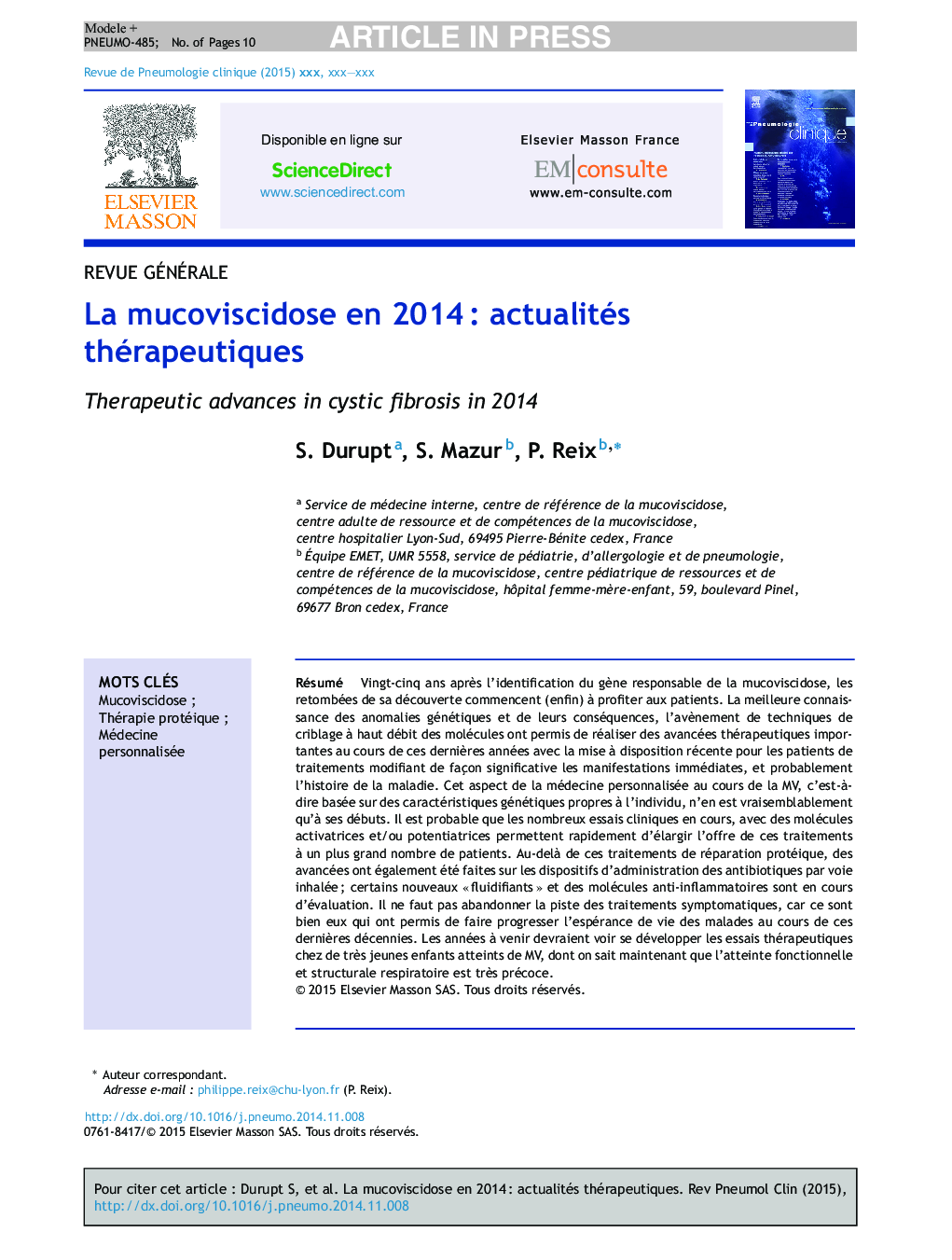| Article ID | Journal | Published Year | Pages | File Type |
|---|---|---|---|---|
| 3419344 | Revue de Pneumologie Clinique | 2016 | 10 Pages |
Abstract
Twenty-five years after the cystic fibrosis (CF) gene identification, this discovery actually begins to benefit to patients. Increasing our knowledge on CFTR biology, as well as technical progress made in order to screen for new drugs have made therapeutic strategies move an important step forward. It is likely that in the forthcoming years, the panel of molecules available for CF patients will be larger, with new activators and potentiators. The disease by itself may consequently change in its natural history. CF is an example of the so-called personalized medicine, aiming to fit treatment according to patient's genetic background. Ongoing clinical trials may enlarge the actually limited eligible number of CF patients for new drugs such as ivacaftor. Beyond this exciting and promising new therapeutic approach, one may not push symptomatic treatments on the side. Improvements have been made for inhaled antibiotics administration, aiming to simplify patient's life; clinical trials using new molecules able to liquefy mucus or with anti-inflammatory properties are actually underway. One important next step in the care for CF will be to design and conduct early intervention trials in CF infants. Newborn screening program have been widely implanted around the word, and cohorts studies have shown that both functional and structural abnormalities occurred very early, making the therapeutic window of opportunity tight.
Keywords
Related Topics
Health Sciences
Medicine and Dentistry
Infectious Diseases
Authors
S. Durupt, S. Mazur, P. Reix,
